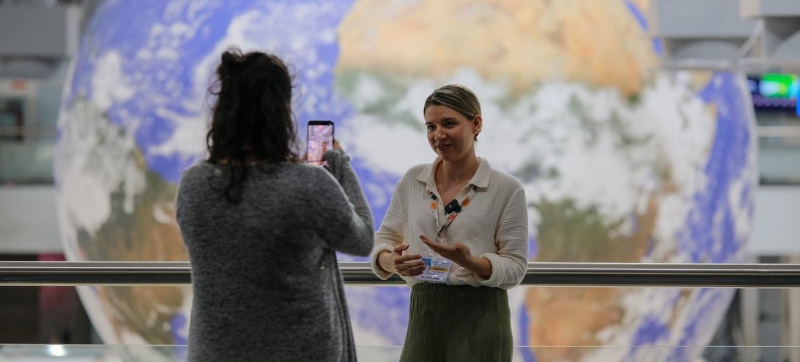
The Thirtieth UN Climate Conference (COP30) is taking place in Belém, Brazil. UN Climate Conference: New Initiatives to Protect People and Planet Climate and Environment
The UN Climate Conference (COP 30) in Belém, Brazil, unveiled a number of key initiatives on Thursday with a common goal of protecting people and the planet from the impacts of the climate crisis, advancing environmental justice and ensuring a sustainable future.
Green Projects for Refugees
The United Nations High Commissioner for Refugees (UNHCR) has unveiled the world’s first large-scale sustainable finance initiative led by refugees themselves immigrants.
The Refugee Environmental Protection Fund will support projects to restore forests, deploy clean energy and create green jobs by linking nature restoration to supporting livelihoods.
“The fund allows you to invest in nature, create safer environments and engage people in processes that protect the land from which they depend,” said Siddhartha Sinha, Head of Innovative Finance at UNHCR.
The first projects are in Uganda and Rwanda, where they plan to restore more than 6,000 hectares of degraded land, provide access to clean energy for more than 15,000 people, introduce cleaner and safer cooking solutions, and create sustainable jobs in nursery management, soil conservation and domestic services. These measures will help reduce carbon emissions by more than 200 thousand tons will strengthen food and water systems and create livelihood opportunities.
The fund is already preparing to expand its work in Brazil and Bangladesh, including projects to protect Amazonian forests and indigenous ecosystems.
Water and climate action
Speaking at a meeting of the Baku Dialogue on Water for Climate Action, UNEP chief Inger Andersen emphasized that water must be a central theme of climate efforts.
“Almost three billion people suffer from water shortages, and 90 percent of natural disasters are related water,” she said.
The Water for Climate Action Initiative, supported by UNEP, the World Meteorological Program (WMO) and the Economic Commission for Europe (ECE) UN, aims to stimulate investment in nature-based solutions and integrated water resources management, with a special focus on vulnerable regions.
Reducing losses food
In addition, UNEP and partners have launched the Food Waste Breakthrough Initiative, which aims to halve global food wastage by 2030, reduce methane emissions by 7 percent and lower global levels hunger.
The world’s population throws away over 1 billion tons of food every year, which leads to the formation of 10 percent of global greenhouse gas emissions.
“The world loses an unacceptable amount of food every year in all countries, rich and poor. Reducing food waste is the key to fighting hunger and reducing methane emissions,” emphasized Inger Andersen.
A new program funded by the Global Environment Facility will support cities and countries to develop national strategies to reduce food waste and methane emissions, adapt and scale up proven solutions in developing countries, and strengthen international cooperation in this area.
New tools to combat extreme heat
The UN COP 30 also introduced a Framework and toolkit for managing the risks posed by extreme heat.
The initiative will help countries assess and reduce the risks associated with extreme heat, which kills more than 500,000 people each year and causes approximately $1 trillion in lost productivity.
“Integrated, cross-sectoral and multi-level heat risk management is no longer is a matter of choice “It’s a matter of survival,” said Kamal Kishore, head of the UN Office for Disaster Risk Reduction.
In 2026, pilot projects will take place in Barbados, Senegal and Cambodia, where practical mechanisms for coordination, financing and early response.
Environmental defenders
On the eve of the high-level session “Protect Defenders”, UN Assistant Secretary-General for Human Rights Ilze Brands Keris called for support for human rights defenders who are fighting for people’s right to a healthy environment.
She said environmental activists are being harassed, arrested and even killed: 167 such activists were killed in 2024. In addition, they were detained in 28 countries around the world.
“These numbers are not an abstraction, but real human lives cut short or forever changed in the fight to protect our planet,” said Brands Keris.
“We have a responsibility not just to thank them, but also to provide them with reliable protection,” – she emphasized.
